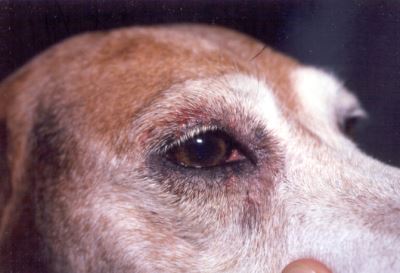Dogs
6 Common Problems in Pups to Watch For
Every pup is special and you have to do your best to protect him. Thankfully, with proper diet and exercise, you can help him live a normal life. Aside from that, you are giving your pup’s immune system a boost to effectively ward off bacteria and viruses.
Even if you can’t always protect your adorable pooch from everything, you can still do something. Of course, it pays to be educated and be familiar about every possible issue in his life. Hence, to help you get started, here are 6 of the most common problems in pups, he may possibly encounter in the early stages of his life.
1. Parvo



Parvo is a highly contagious disease that attacks pups, aged 12 to 36 weeks. Though it can be prevented by providing proper vaccination as early as six weeks, it can still be easily transmitted through unvaccinated dogs and other bodily secretions.
It all begins with a fever. In the next few days, a dog will begin to vomit and excrete bloody stool. Eventually, he becomes dehydrated and weak. So if you don’t want this to happen, vaccinate your pups against parvovirus.
Canines diagnosed with parvovirus often recovers within three to seven days. They are usually hospitalized for at least three days before they can go home with proper medications.
2. Leptospirosis
Leptospirosis does not only affect humans. Our four-legged buddies may also be diagnosed with it. This disease can be passed on through infected urine and contaminated water.
Take note that not all animal clinics offer vaccination for leptospirosis, so make sure to ask your vet if your puppy needs it. Normally, they administer shots at 10 to 12 weeks. And then, they do it again at 13 to 15 weeks. Still, it can be treated with antibiotics, depending on the degree of the infection.
Symptoms of the disease are similar to flu – fever, lethargy, and vomiting.
3. Distemper
Canine distemper is another serious viral disease with no known remedy. It is said to affect various dog breeds, as well as other animals like raccoons, foxes, and wolves. However, if your pooch is vaccinated, you need not to worry because it is very effective. The first vaccination will be given within six to eight weeks. After 9 weeks, your dog has to receive it again for him to become immune to the distemper virus.
This disease starts with an eye discharge and frequent sneezing. Later on, it can develop into pneumonia, which may lead to more complex neurological issues.
As soon as you notice the signs, make sure to seek medical attention. Bring your baby pooch to the nearest clinic to receive inpatient supportive care. Although it may take weeks for him to fully recover, he can definitely go home with several medications.
The bad news here is that if he survives, chances are the virus breaks out again when he gets older. In that case, it could be worse.
4. Vomiting
If your pup is suffering from vomiting, intestinal parasites are the number one culprit. Otherwise, he might have ingested something he shouldn’t have.
Don’t panic though. Just keep on offering water. If your pooch asks for food, give it to him. Make sure it’s safe for him to eat. Provide what he wants to keep him hydrated. If the problem continues for 24 hours, take him to the vet to receive proper medication.
If the vomiting is not caused by parasites, your pup should immediately recover in a day.
5. Kennel Cough



An airborne disease caused by canine parainfluenza viruses, kennel cough is a contagious respiratory disease among canines. It begins with lethargy and fever. And then, it progresses into a deep cough. If left untreated, it could result in pneumonia.
Pups can be vaccinated against this disease. More often than not, shots are given at 6 to 8 weeks. The next round will be administered at 6 to 1 2months. But if you notice any unusual coughing from your pups, take him to the vet right away. Recovery from kennel cough may last up to 2 weeks.
Well, the name of the disease can be misleading, but it’s not just a disease that can be acquired by puppies that are confined in dog kennels. No dog is exempted.
6. Canine Adenovirus
While it’s a pretty rare case due to the effectiveness of vaccines, canine adenovirus often results in hepatitis among canines. This virus targets internal organs, like the liver and kidneys.
Unfortunately, it’s really hard to determine if your pups have adenovirus. Yet, it begins with gastrointestinal issues like diarrhea and vomiting. Dogs who are diagnosed with this disease are often treated through inpatient fluid therapy. Also, nutritional support might be prescribed.
They may be adorable and complete darlings, but pups are extremely fragile beings. One disregarded symptom may cost their lives. Therefore, as soon as you notice any unwanted signs, do not hesitate to contact the vet. Remember, their health solely depends on you. So while they are young, feed them right and provide them with the nutrition they need. Just be the responsible pet owner they think you are.
Image Sources: [1] [2] [3] [4] [5] [6]



